As campus emptied after Commencement on May 14, new graduates from the Class of 2023 fanned out to jobs, graduate schools and other ventures across the U.S. and around the world. We asked some of them to share their plans and perhaps a thought about their time at Pomona.
“My time at Pomona taught me that I want to work in a field where I’m constantly learning and can think critically about how to create positive social change. That’s why I’m so excited to work for a nonprofit consulting company whose clients are exclusively nonprofits and philanthropists.”
“The physics behind stellar flares is interesting and somewhat mysterious. I’m hoping to focus my research at Cambridge on simulations of plasma or magnetic activity similar to what we might see in flaring stars.”
“I think it’s probably the most important job in the world to uplift the most vulnerable, which are children.”
“The Pomona community’s lively commitment to social justice helped me realize that I wanted to pursue a career in public interest. I hope to use my law degree to become a public defender.”
“Pomona’s liberal arts environment helped refine my interests and deepen my skills, from founding an organization like P-ai.org (artificial intelligence incubator for projects and ideas) to participating in the Randall Lewis Center for Innovation and Entrepreneurship program at CMC and teaching writing to area youth once a week. I feel prepared for graduate school and to build a startup in the artificial intelligence/machine learning space.”
“The Pomona science classes do a particularly good job at cultivating scientific inquiry and making you really curious. An M.D.-Ph.D. is all about being curious and creative and thinking about new ways to solve problems, and Pomona really sets you up to do that.”
“I will be attending graduate school in hope of earning my Ph.D. in genetics and bioinformatics with the long-term goal of returning to Pomona as a professor.”
“The Physics/Astro Department at Pomona has helped me to become passionate about and confident in trying to solve difficult problems. I’m hoping to continue to solve difficult problems at my first job and throughout my career.”
“I chose UIC Criminology, Law and Justice so that I can continue my work as an educator and activist within my home city, Chicago. Pomona allowed me to build relationships with educators like Professor J Finley interested in my personal and intellectual growth.”
“I came to Pomona because I knew I loved learning but had no idea what I wanted to study. Four years later, I’m heading into finance thanks to all the clubs I was given the opportunity to be part of that allowed me to hone in on my interests (through lots of trial and error!). I’m excited to start my career in a field that’ll let me continue to explore my intellectual curiosity—a trait that has developed so much at Pomona.”
Instagram Highlights
Leading up to commencement, Class of 2023 were showcased weekly in a series called Senior Spotlight:
 Marley Evans
Marley Evans
Evans, who is from Dallas, double majored in economic psychology and dance.
One of her proudest accomplishments was having the opportunity to design her own major. With tremendous support from her special major committee, Economics Professor Eleanor Brown, Assistant Economics Professor Malte Dold, and Psychological Science and Asian American Studies Professor Sharon Goto, Evans was able to combine her interests in economics, psychology, consumer behavior, product development and human-centered design into an economic psychology major and, ultimately, her senior thesis. She is deeply grateful to her professors for the unique opportunity to create an area of study she is truly passionate about.
Evans was a part of the dance programs at Pomona and Scripps. She performed in the Pomona and Scripps “In the Works” concert as her last college dance show. As she danced her final pieces with fellow cast members and took a final bow, Evans realized what a true gift from God this art has been for her throughout her life but especially throughout college. She also was in Claremont Christian Fellowship (CCF), a loving community she is proud to have been a part of.
Evans plans to pursue a future in the realm of product development, product marketing and product management. She also is exploring how she can use her skills in an entrepreneurial career as well as finding needs, solving problems and providing support in various industries where she can lend a hand.
“As cliche as it is, everything happens for a reason. Not only did I get to fall more in love with my passion for dance and create a perfectly fitted major for my interests, but Pomona was also the place where I truly found myself and my faith through times of trial and through times of great joy. I don’t believe it all could’ve happened anywhere else,” she says.
 Michael Hwang
Michael Hwang
Hwang is a molecular biology major from Ann Arbor, Michigan. During his time at Pomona College, Hwang helped transition the Music Mentors Program from a 5C club to an official program at the Draper Center. Mentors connect students at The Claremont Colleges with youth from surrounding underserved communities to provide free music lessons.
Hwang also had the opportunity to coordinate this year’s Alternabreak trip to Washington, D.C. Alternabreak is a program that provides students with the opportunity to leave campus and engage with the broader community during spring break. Despite the challenges of reviving and reshaping the program after a three-year hiatus, the experience was incredibly rewarding and Hwang is proud to have been a part of the effort in preserving the program’s legacy.
He says he has had the privilege of finding mentors who have had a significant impact on his personal and academic growth. Among them are Associate Professor of Biology Sara Olson, Dylan Worcester at the Quantitative Skills Center and Rita Shaw at the Draper Center. These people have helped him celebrate triumphs as well as work through several setbacks during his time at Pomona. Although he will miss the support system they provided, he is grateful to have formed meaningful relationships with them.
“In retrospect, I realize that one of the most valuable aspects of attending Pomona has been the opportunity to connect with people from a wide range of backgrounds and experiences. Being able to see the world through so many different perspectives has been truly transformative and eye-opening,” he says.
After graduation, Hwang will be conducting clinical research in pediatric endocrinology through the 2023 NIDDK Distinguished Postbaccalaureate Scholars Program at the National Institute of Diabetes and Digestive and Kidney Diseases in Bethesda, Maryland. He will work on clinical trials focused on treating diabetes, metabolic disorders and kidney diseases that disproportionately burden underserved communities.
 Yutong Niu
Yutong Niu
A double major in economics and international relations, Niu will begin her career as an associate consultant for OC&C Strategy Consultants in New York.
“The strong alumni network that Pomona provides allowed me to learn about different fields and industries and build meaningful connections,” she says. “In the process of connecting with fellow alumni, I was truly humbled by their passion, achievements and dedication to helping current students succeed.”
 Anvitha Reddy Pentaparthy
Anvitha Reddy Pentaparthy
Pentaparthy is a media studies major from Hyderabad, India. She chose Pomona for its liberal arts experience to explore different areas of interest, build one-on-one relationships with professors and students, and to belong to a tight-knit community that is both diverse and welcoming.
Apart from the friends and relationships she has made here, Pentaparthy says she will miss the beautiful campus the most—the views of the snow-covered mountains and sunsets on Marston Quad are her absolute favorite.
One of her most meaningful projects at Pomona was her senior thesis. Her project included a gallery installation that documented how international students in Claremont, specifically from South Asia, have found a home away from home through Shaila Andrabi, who is the coordinator of Muslim Life at The Claremont Colleges. Pentaparthy’s project delved into the concepts of identity, community and hybridity—themes that represent the immigrant experience.
She also interned at Sony Pictures Entertainment on its global team. Breaking into entertainment, she says, is already difficult without being an international student and that it had been a dream to be able to work at a studio that has produced some of her favorite content.
Beyond Pomona, Pentaparthy plans to go to graduate school this fall and is excited to continue her career in entertainment, specifically within global content.
“I’m grateful to Pomona for teaching me that I can weather adversity and emerge stronger for it. My time here has given me confidence in myself—I can uproot myself, travel across the world, and still find a sense of home, community, and belonging no matter where I go. Moreover, I think Pomona has given me the immensely useful tool of critical thinking that I believe will be handy no matter what direction my future takes,” she says.
 Delmy Ruiz
Delmy Ruiz
Ruiz is a public policy analysis major with a concentration in biology from Los Angeles. She chose Pomona because she wanted an institution conducive to her pursuit of a pre-med career path. In the last four years, she has participated in programs such as the Pomona Science Scholars and Prehealth Advising that have been integral in helping her find a community as she pursues a career in science.
During her time at Pomona, Ruiz has been a Draper Center Student Coordinator, a resident advisor for three years, a RAISE (Remote Alternative Independent Summer Experience) scholar, a Hispanic Scholarship Fund Scholar, a Fulbright Fellow, and an NIH (National Institutes of Health) Research Fellow. One of Ruiz’s most meaningful experiences at Pomona College was being a volunteer with the Draper Center, which allowed her to give back to the surrounding community in efforts to promote health equity. As a volunteer, she interacts with and supports uninsured and underinsured patients who otherwise would have found it difficult to navigate the healthcare system on their own.
After graduating, Ruiz plans to move to the Washington, D.C., area for nine months to take a position in a lab focused on studying the immunopathogenesis of HIV. Afterward, she will be taking on a Fulbright fellowship in Brazil, where she will be researching healthcare innovations in northern and southern states. After two gap years, she hopes to matriculate in an M.D. program. She says she has been fortunate to have created a strong support system at Pomona.
“I am going to miss the people and the professors. I have met some of the most motivated students and some of my most inspiring mentors here,” she says.
 Joshua David Suh
Joshua David Suh
Suh is a mathematics major and music minor from Cypress, California. He chose Pomona College because of its intimate community and environment. He says he will miss the faculty on campus the most: “They really offered me such a wealth of information. I felt like with certain faculty I made such a genuine connection, and I’m definitely going to miss seeing them in my day-to-day life.”
Pomona taught him to explore what life has to offer and not be afraid to try new things, Suh says. Outside the classroom, he has tried ballroom dancing, mahjong, clarinet and classical voice, and was part of Pomona’s jazz, West African, and Afro-Cuban music ensembles. Suh also was part of the Mood Swing a cappella group and has taken voice lessons with Ursula Kleinceke, a lecturer in the Music Department, since his first year of college. Before Pomona, he had never sung before but learning from Kleinecke has given him confidence, the necessary technique and a genuine joy for performing.
Suh also has been awarded the art prize for Tabula Rasa, the 5C philosophy journal, for a piece he recorded called “Cat and Mouse,” an improvisational composition of piano and saxophone based on a paper written by Derek Li titled “Problems for a Platonic Idea of Logic.”
In addition, Suh was selected as a participant in a PreLaw Undergraduate Scholars (PLUS) Program with Boston University associated with the Law School Admissions Council. He plans to attend law school.
“I think Pomona College really made me a Renaissance man and instilled in me a desire to keep continually learning and exploring what this world has to offer,” he says. “Pomona definitely allowed me to blossom into the person that I feel I am and has given me the strength and confidence to tackle whatever life’s challenges come my way.”
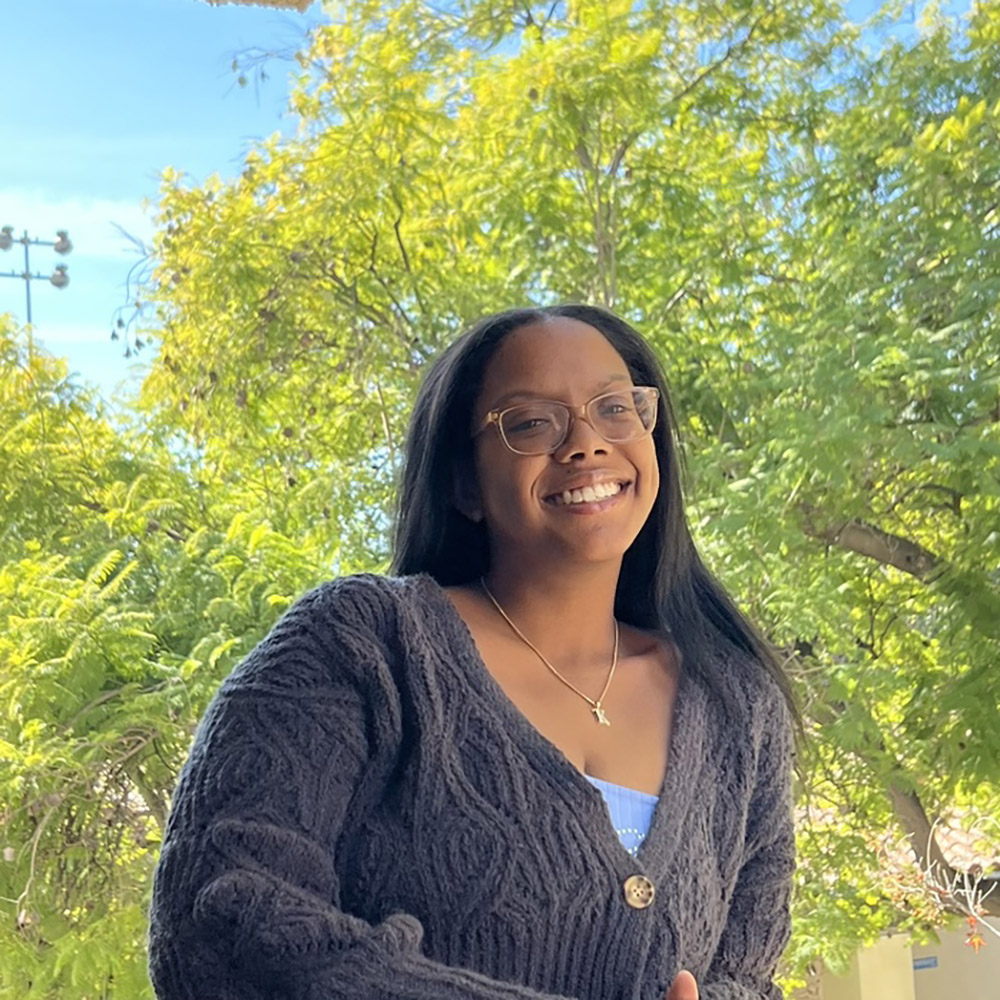 Kristin Walters
Kristin Walters
A mathematics major from Coral Springs, Florida, Walters came to Pomona College as a Miami Posse Scholar.
She was involved in student government, serving as ASPC vice president of student affairs. Walters says she was passionate about working on student issues and cultivating traditions and values at Pomona. She also was a coordinator for the Draper Center, working with Sista-2-Sista and the Pomona College Academy for Youth Success (PAYS).
Walters says the most meaningful experience she had at Pomona was the very first summer she worked with the PAYS program: “It was the best summer ever and I learned a lot about who I am that summer.”
She also learned how to play the oboe and piano and worked with Spotlight Musical Theatre, a 5C student-run musical theatre organization, as a sound designer.
In the future, Walters wants to become a sound designer for animated superhero movies and plans to work with nonprofit organizations to continue giving back to her community.
She says the interdisciplinary experience at Pomona College taught her to think outside of the box. Most importantly, she learned that “just because something is hard does not mean it cannot be done.”
 Luke Williams
Luke Williams
Williams, originally from San Diego, transferred to Pomona his sophomore year because he saw how “active and engaged” students were here. “Pomona has so many resources,” he says. “As a transfer, I was especially grateful for these resources and was able to take advantage of many of them.”
Earlier this month, at the Undergraduate Conference on the European Union, he presented a paper he wrote for his Social Comparative Policy class titled “A Comparative Look at Spain and Italy’s paternity leave policies.”
“I’m really grateful to Pomona College because it’s provided me with a ton of research experience,” he says. “I was able to build connections with faculty as a student, a research assistant and as a teaching assistant. Professors helped me set up internships volunteering at local schools and encouraged me to continue research and apply to conferences.”
Outside of classes, he played for the varsity and club tennis teams, served as a college advisor for Pomona College Academy for Youth Success (PAYS) and was a member of the Bridge Club at The Claremont Colleges, earning second place at the national collegiate bowl.
A politics major and psychology minor, he discovered a passion for working with children while he was a TA for a child development class. After graduating, he is headed to the University of Washington for a combined masters and Ph.D. program in school psychology.
 Grace Fan
Grace Fan
Fan, who is from Irvine, California, majored in public policy analysis major and anthropology. During her time at Pomona, she had great opportunities through internships to learn more about federal and state legislatures at our nation’s and state’s capitols. Through Pomona’s Summer Undergraduate Research Program (SURP), she also conducted research with Politics Professor Sara Sadhwani on Asian American political representation.
Fan had the chance to interview established political players and write a piece that was published by ABC-CLIO, a publishing company for academic reference works and periodicals, primarily on topics such as history and social sciences. A student athlete at Pomona, she played volleyball for Pomona-Pitzer for four years.
Fan says she initially chose Pomona because of the classic appeal of a “small, liberal arts college in sunny SoCal.”
“But in retrospect, Pomona has been so much more—to find a community where everyone has a genuine love of learning at a school that celebrates cross-functional and interdisciplinary thinking is so rare,” she says. “I’ve actually never taken classes in my four years here that I didn’t enjoy—and that is definitely an extremely unique experience.”
Beyond Pomona, Fan plans to join a boutique consulting firm focused on corporate sustainability and ESG (Environmental Social and Governance) policies. In the longer term, she is considering pursuing a master’s of public policy or a J.D., and aims to do impactful policy-adjacent work at the federal level.
“Even though it was only 2.75 years in person, I’m infinitely grateful to have spent my college years here,” she says.

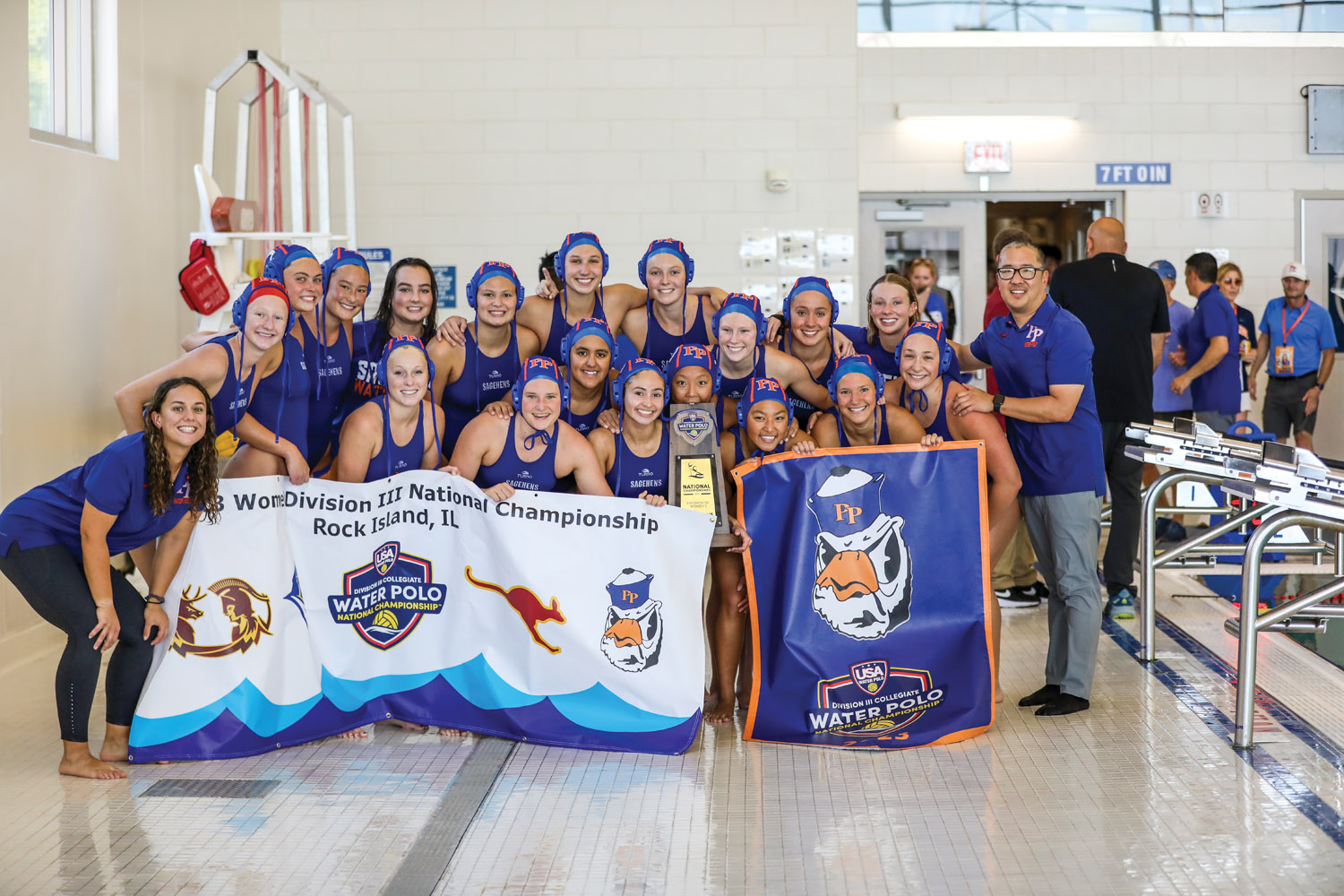
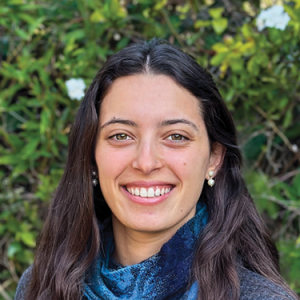 Maddie Asch
Maddie Asch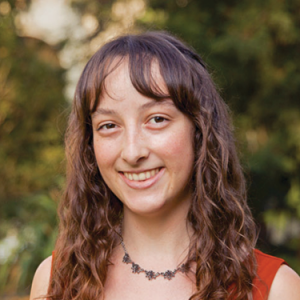 Vera Berger
Vera Berger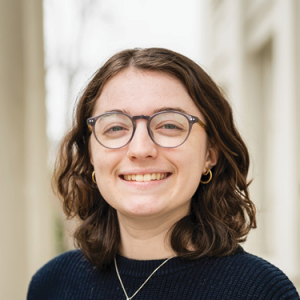 Isabel Fajardo
Isabel Fajardo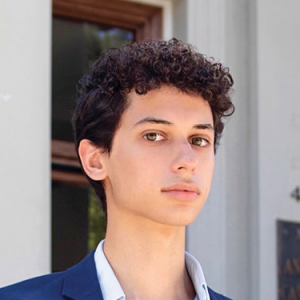 Jordan Hoogsteden
Jordan Hoogsteden Alex Ker
Alex Ker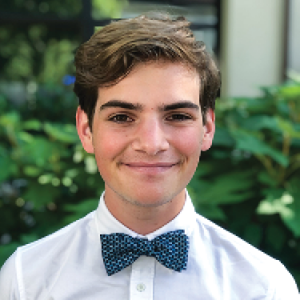 Louie Kulber
Louie Kulber Sean Perez
Sean Perez Taylor Venenciano
Taylor Venenciano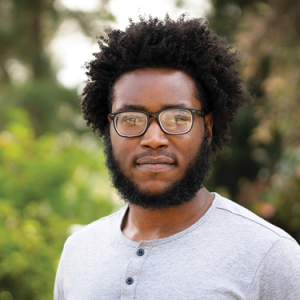 John West Jr.
John West Jr. Sabrina Yu
Sabrina Yu Marley Evans
Marley Evans Michael Hwang
Michael Hwang Yutong Niu
Yutong Niu Anvitha Reddy Pentaparthy
Anvitha Reddy Pentaparthy Delmy Ruiz
Delmy Ruiz Joshua David Suh
Joshua David Suh Kristin Walters
Kristin Walters Luke Williams
Luke Williams Grace Fan
Grace Fan










